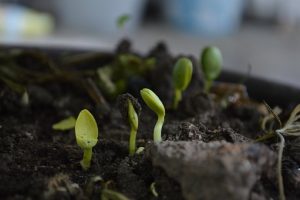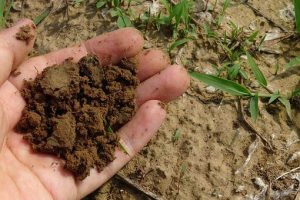While farmers are affected more than most by the extreme weather conditions caused by climate change, many farmers still use farming techniques that degrade the environment. In the face of rising temperatures, desertification, and declining soil and water quality, many farmers are choosing to fight for the health of their land and the local environment by choosing safer agricultural practices. Organic farming, sustainable farming, and regenerative farming involve environmentally-conscious practices that aim to preserve or improve the health of local ecosystems. Whether you have been farming for years but want to transition to organic, sustainable, or regenerative farming to protect the health of the community and ecosystems, or you’re new to farming and excited to adopt practices that can help combat global warming, these tips will start you on the right track to operating a successful farm.
Research Organic, Sustainable, and Regenerative Farming to Find the Right Fit
While there is much overlap in the philosophies behind and the techniques used in organic farming, sustainable farming, and regenerative farming, it is nonetheless important for farmers to understand the difference. Firstly, knowing the distinctions will help farmers to decide which methods meet their needs in terms of the farm’s location and natural resources, affordability, ease, and impact on the environment. Secondly, farmers should know how organic farming is different from sustainable farming or regenerative farming so that they can answer customers’ questions accurately and knowledgeably. Thirdly, different organizations certify farms as organic, sustainable, or regenerative. While being certified isn’t a priority for some farmers, other farmers find it essential to reach their target market.
Find a Training Program or a Mentor
After you’ve determined what kind of farm you want to have, you’ll need to learn more about how to actually put those techniques into practice. The amount you need to research or collaborate with other farmers will vary based on your own experience with agriculture. Farm training programs can help expose you to organic, sustainable, or regenerative farms and their respective techniques, as can informal conversations with other local farmers at farmer-meet-up symposiums. While books and the Internet are an invaluable source of information, it is essential for new farmers to have farmers to contact who have used the same techniques and can answer questions as they come up.
Choose the Right Plants or Animals for Your Site
 Take stock of the natural resources available to you at your farm site before choosing what crops to plant or what livestock to raise. Farms are much more successful when their purpose is carefully planned with its location in mind. Sustainable farming emphasizes the need for farming to be economically sustainable. Even for farmers who don’t follow sustainable farming practices, the advice is nonetheless practical, and farmers should assess the proximity of the market and the ease of transportation when choosing a site or determine what to produce. Farmers interested in organic, sustainable, and regenerative farming will be most successful when they choose crops and animals suited to their elevation, landscape, temperature, and soil, since these they won’t be using chemicals or antibiotics to address problems that arise. Finally, farmers need to be sure that they know their local market before committing to a product with low local demand.
Take stock of the natural resources available to you at your farm site before choosing what crops to plant or what livestock to raise. Farms are much more successful when their purpose is carefully planned with its location in mind. Sustainable farming emphasizes the need for farming to be economically sustainable. Even for farmers who don’t follow sustainable farming practices, the advice is nonetheless practical, and farmers should assess the proximity of the market and the ease of transportation when choosing a site or determine what to produce. Farmers interested in organic, sustainable, and regenerative farming will be most successful when they choose crops and animals suited to their elevation, landscape, temperature, and soil, since these they won’t be using chemicals or antibiotics to address problems that arise. Finally, farmers need to be sure that they know their local market before committing to a product with low local demand.
Take Care of Your Soil Before and After Planting
 Organic farming, sustainable farming, and regenerative farming all emphasize the importance of developing a healthy soil system. Healthy soil ecosystems trap more carbon dioxide from the air and produce better plants, so taking care of your soil is essential. Regenerative farming is particularly concerned with cultivating healthy soil microbiomes because these ecosystems help to sequester carbon and reverse climate change, but organic farming and sustainable farming also emphasize the importance of maintaining the health of the environment, starting with the soil.
Organic farming, sustainable farming, and regenerative farming all emphasize the importance of developing a healthy soil system. Healthy soil ecosystems trap more carbon dioxide from the air and produce better plants, so taking care of your soil is essential. Regenerative farming is particularly concerned with cultivating healthy soil microbiomes because these ecosystems help to sequester carbon and reverse climate change, but organic farming and sustainable farming also emphasize the importance of maintaining the health of the environment, starting with the soil.
One of the easiest and most effective ways to care for your soil is by composting organic waste and applying the compost to your soil. Compost is a great way to get rid of kitchen scraps and crop residue while improving the quality of your soil. Composting also reduces water use, cuts down on weeds, and saves farmers money on fertilizer.
